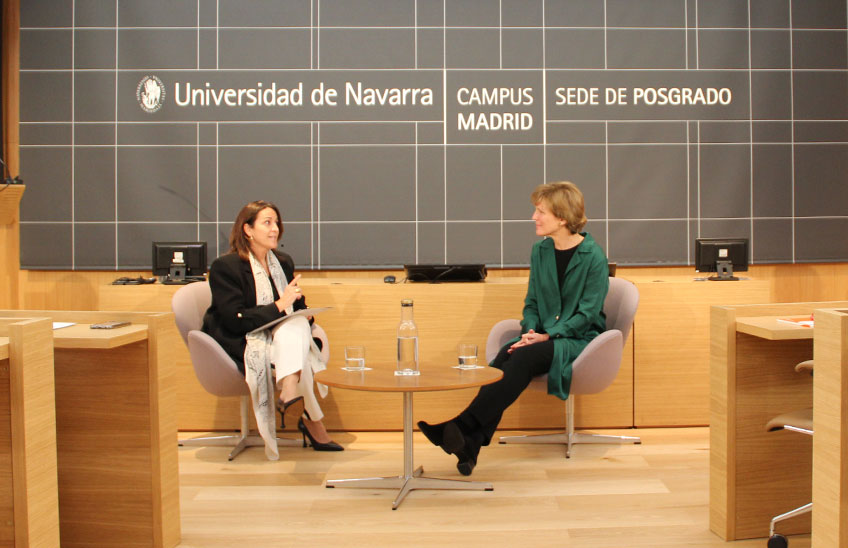77% of companies consider implementing blockchain systems to be a competitive advantage
The University hosted the VI Logistics conference organised by School of Economics and Chair Volkswagen Navarra.

FotoManuelCastells/About 300 students, alumni and companies participated in the VI conference Logísticas.
15 | 11 | 2021
"For 77% of companies, implementing blockchain systems is a competitive advantage". This was stated by Diego Rodríguez Roldán, partner manager of the Risk Advisory Innovation Centre at Deloitte, at the VI conference Logísticas held at the University of Navarra. Organised by the School of Economics and the Chair of business Volkswagen Navarra, the event was also attended by Claudio Tessone, director of the UZH Blockchain Center; Ignacio Ferrer-Bonsoms, president of the Blockchain Arbitration Society; and Ignacio Orradre, University Secretary of the association Navarra de Empresas de Transporte por Carretera y Logística (ANET).
Rodríguez Roldán pointed out in his speech that the blockchain has meant, in addition to a technological disruption, a cultural change: "We have been unable to trust each other throughout history and we need third party intermediaries such as banks, courts or notaries to provide us with this trust. subject And suddenly a simple, decentralised, transparent and unalterable system has emerged that allows us to create records for all kinds of contracts, payments or properties, and can reinforce the credibility of institutions".
He also pointed out that what was born as a potential payment system such as Bitcoin has become a very valuable traceability system for companies by making use of its underlying technology, the blockchain. "Its application has an impact in many areas: process efficiency, cost savings, revenue generation or, for example, time optimisation," he said.
Cryptocurrencies as a form of financing
Claudio Tessone, director of the UZH Blockchain Center, explained that the emergence of blockchain "responded more to a social phenomenon than an economic one" and analysed the three characteristics that define this technology: economic decentralisation without state control, anonymity or pseudo-anonymity and an open participation system. He also stressed the importance of trust and consensus as the two aspects that make this blockchain system work. "A blockchain, when used as a form of payment, is nothing more than a sequential list of transactions from different actors participating in a system based on trust," he said.
Finally, Ignacio Ferrer-Bonsoms, president of the Blockchain Arbitration Society, pointed out that "Bitcoin is not money from a legal point of view, but it is if the parties adopt it based on a means of trust". In addition, he showed different use cases in the financial and business sphere and made reference letter to new financing models that are emerging thanks to the blockchain. "Companies want to start tokenisation processes. That is to say, to fraction a right or asset and represent it with a digital token that is called a token and that is a cryptocurrency for practical purposes. This system is an advantage in terms of ease of transmission and profitability," he concluded.




